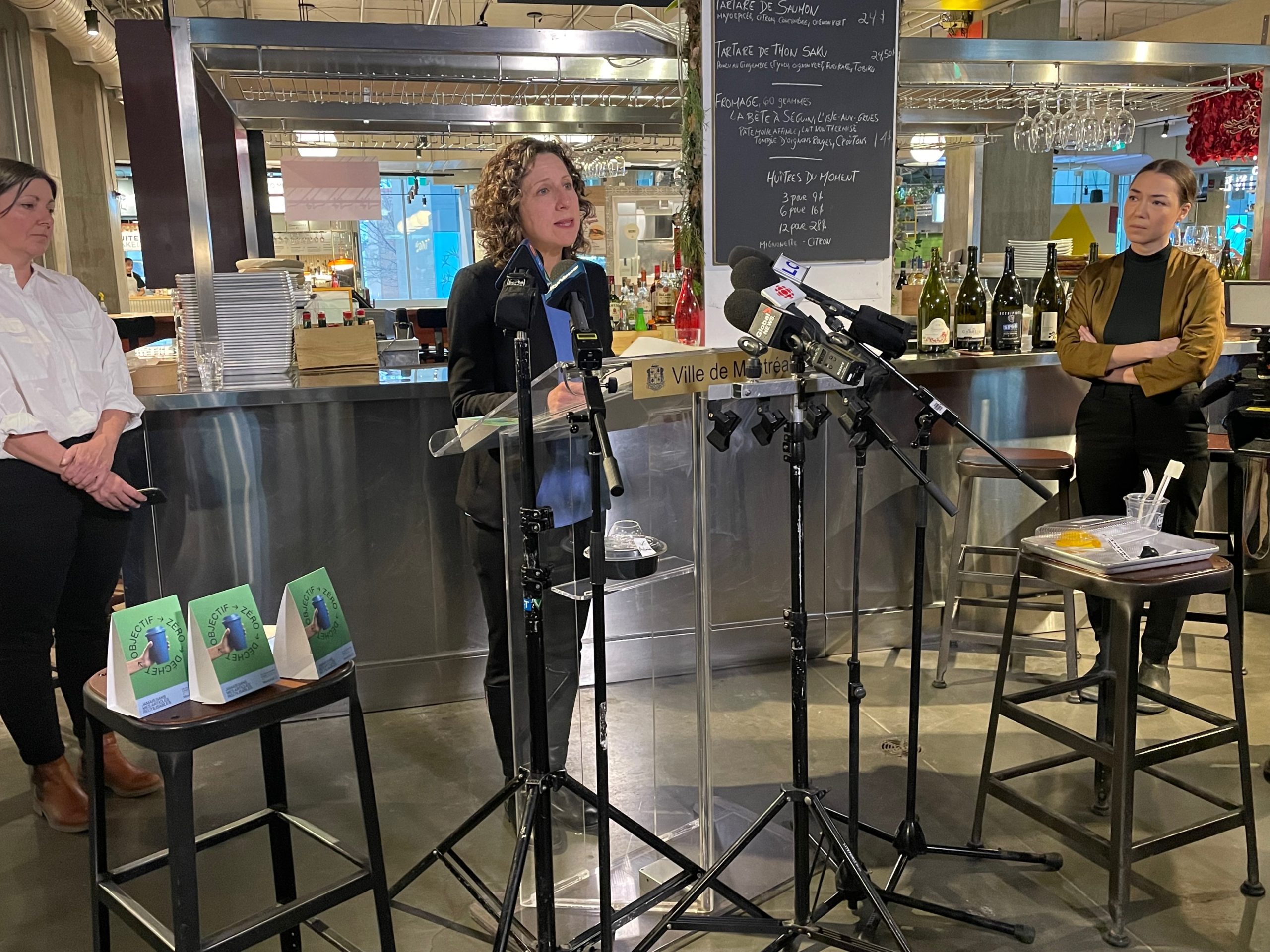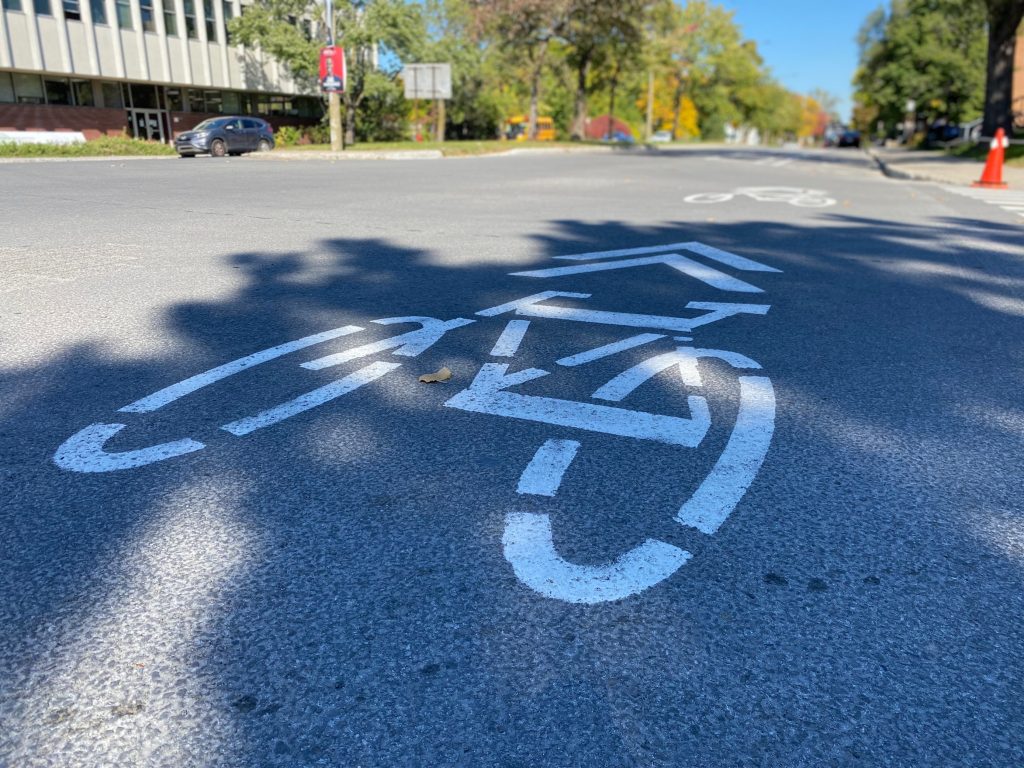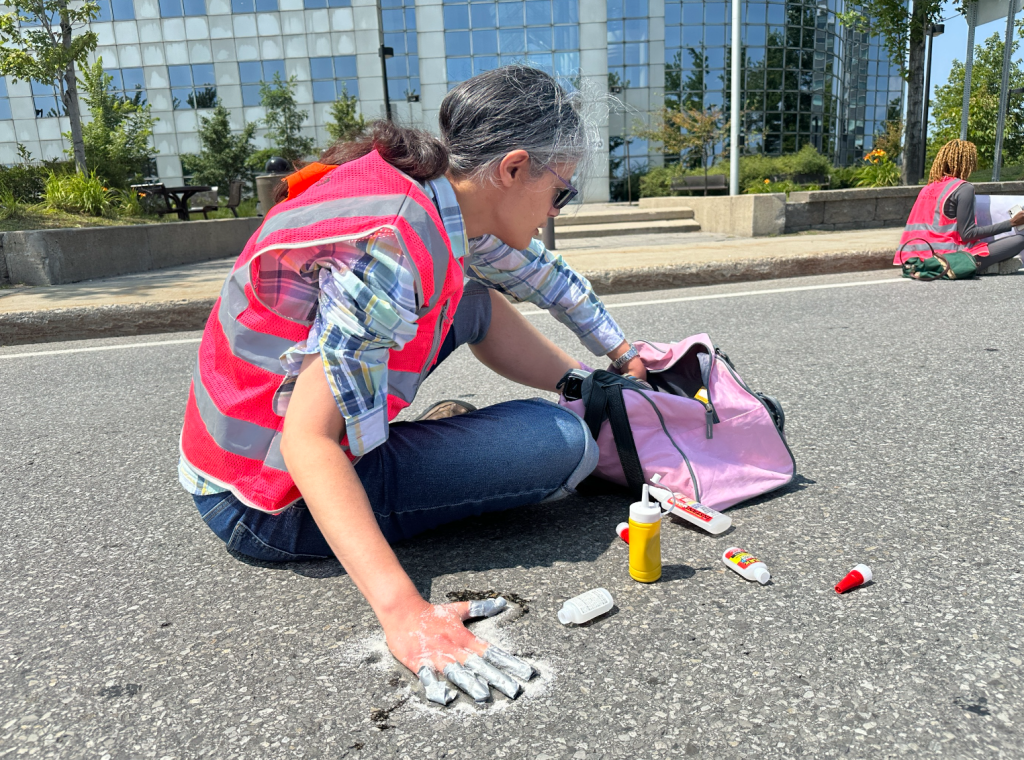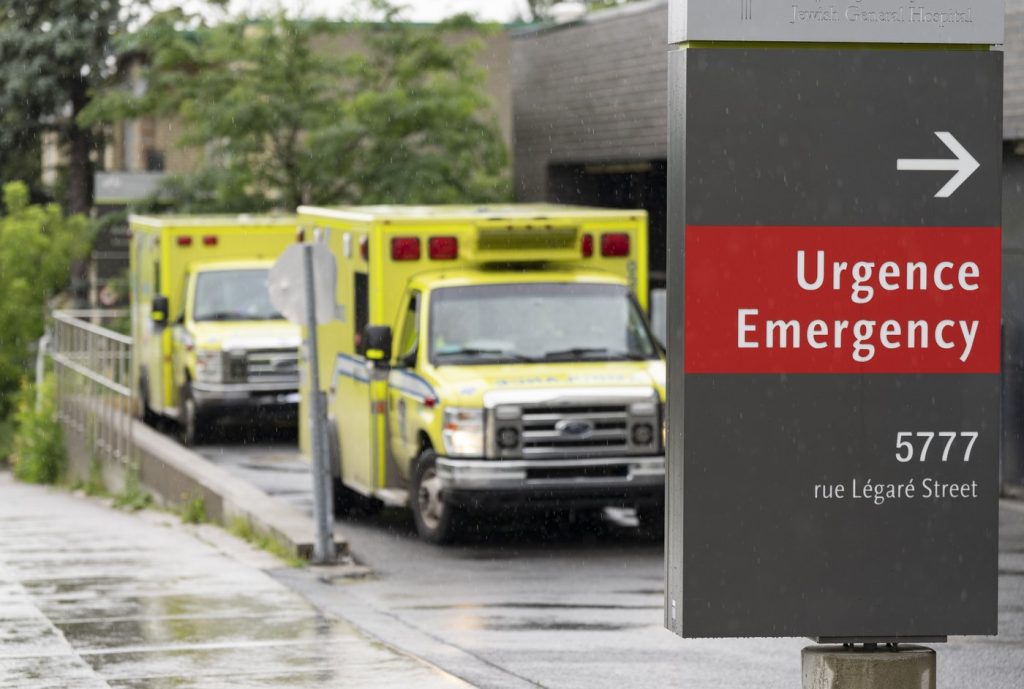Montreal ban on single-use plastics to be enforced starting March 28

Posted March 23, 2023 3:28 pm.
Last Updated March 23, 2023 4:02 pm.
Montreal is making a major shift towards achieving its zero waste objectives by 2030 — with a bylaw targeting certain single-use items starting next week.
“We’re very proud to announce that our bylaw on banning certain single-use plastics will be enforced starting Tuesday, March 28,” said Marie-Andrée Mauger, during a Thursday press conference.
Mauger is responsible for city’s ecological transition and environment on its executive committee.
With the only landfill in the Montreal area reaching full capacity in 2029, the city says it has no choice but to proactively reduce plastic at the source.
“A big number of single-item plastics end up either in the environment or in the land field,” said Mauger. “So we really aim to reduce at source.”
New rules for Montreal businesses, with some leniency
Certain compostable and non-compostable plastic items like cups, glasses, stir sticks, straws and utensils for consumption on site will be banned. The move will also affect some take-out containers and utensils.
The city says that all 8,400 food businesses and restaurants have been informed of the resources and tools available and hundreds of communication kits have been posted in businesses and restaurants, as well as to associations and partners.
Since the bylaw was passed 18 months ago, the city has been working to support all businesses affected by this green transition.
A digital kit with reference tools was sent to more than 100 business and industry associations, environmental non-profit organizations, educational institutions, health care facilities and cultural and event organizations.

Marie-Andrée Mauger, during a press conference in Montreal on March 23, 2023. She is responsible for city’s ecological transition and environment on its executive committee. (CREDIT: Matt Tornabene/CityNews)
A time to change destructive and wasteful habits
Merchants will be given time to use up their inventory before inspectors start applying fines, which will range anywhere from $400 to $4,000.
“Really the vision and the goal behind this bylaw is to reduce the number of single-use items that we use everyday,” said Mauger.
“It’s really a signal that we all need to change habits and we need to switch to reducing our consumption.”
The new bylaw will not affect non-profit charitable organizations that distribute food or meals to vulnerable people — or establishments that only provide home delivery service.



